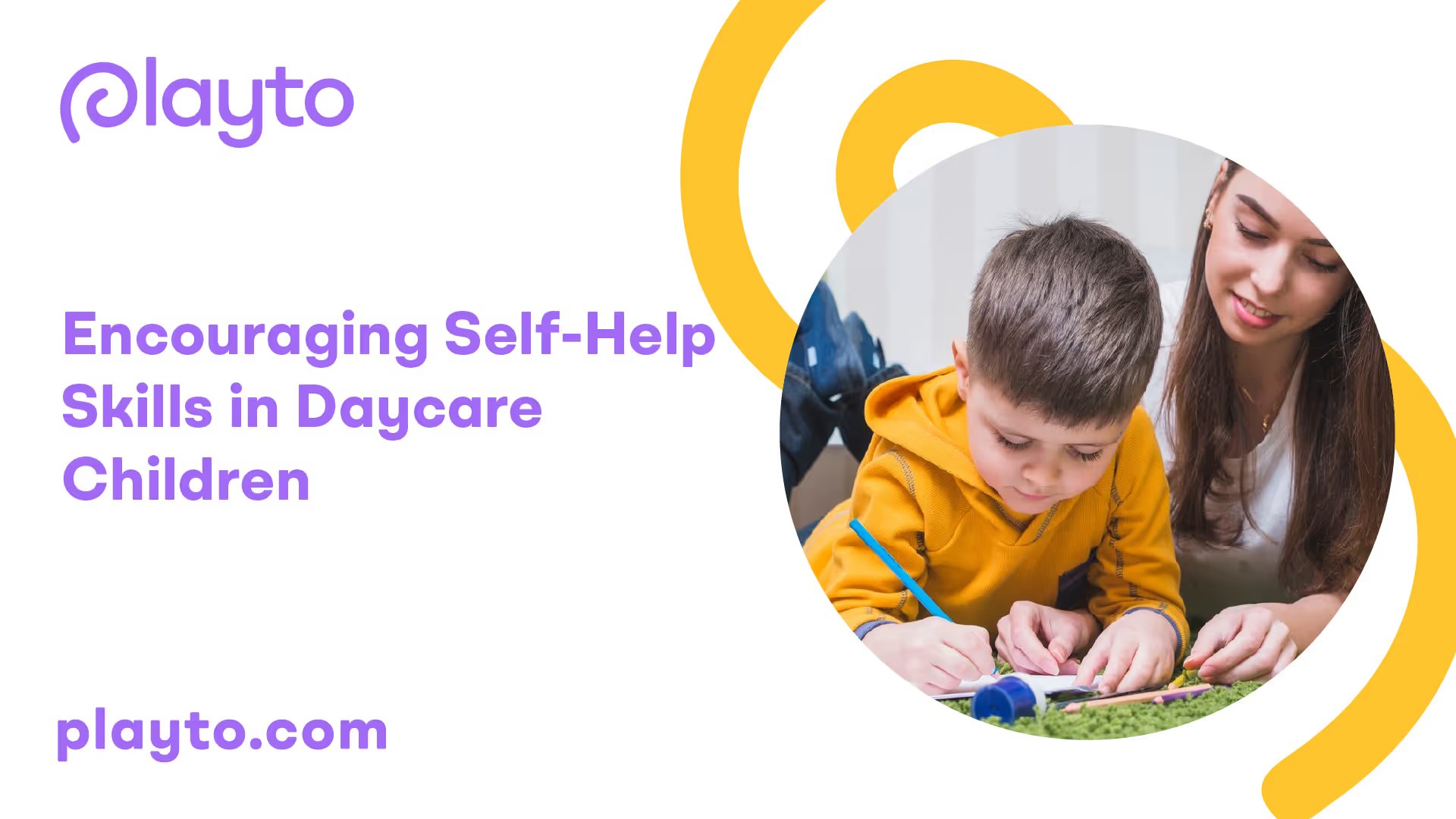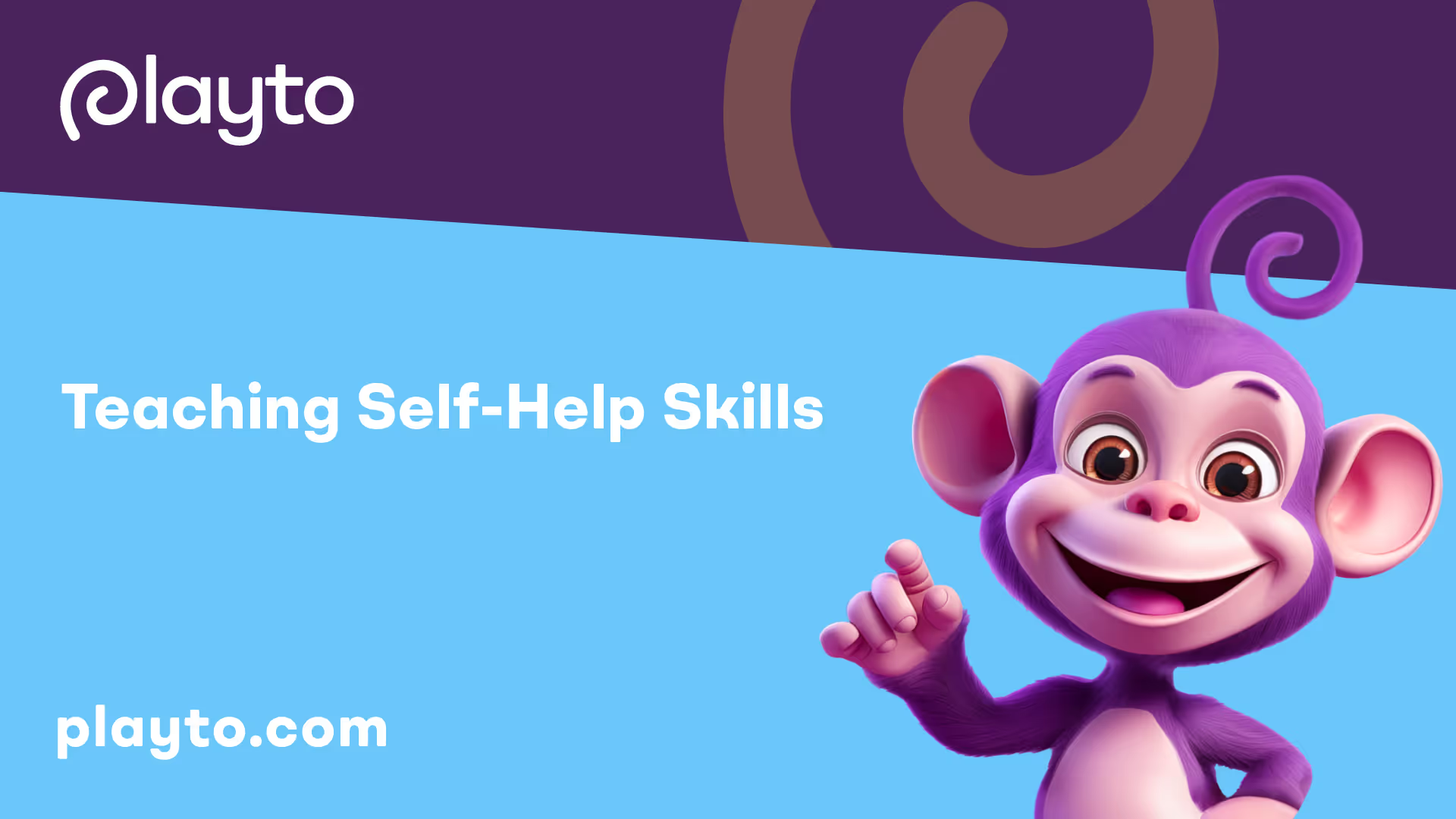
Encouraging Self-Help Skills
Encouraging self-help skills in children is an important aspect of their development. These skills not only promote independence but also contribute to their overall growth and well-being. By fostering self-care skills and empowering independence, children in daycare can learn valuable life skills that will benefit them as they continue to grow.
Importance of Self-Care Skills
Self-care skills, such as dressing, eating, and practicing good hygiene, are essential everyday tasks for children to be ready to participate in various activities of daily life Child Development. Children are expected to develop independence in these tasks as they mature. Encouraging these skills early on can empower children to be more independent, inspire them to try new things, and keep them active.
Teaching children self-help skills provides them with a sense of accomplishment and boosts their confidence. It helps them understand the importance of taking care of themselves and prepares them for future responsibilities. By mastering self-care skills, children develop a greater understanding of their bodies, personal hygiene, and their role in maintaining their own well-being Stride.
Empowering Independence
Empowering children with self-help skills fosters independence and self-reliance. By learning to perform tasks on their own, children gain a sense of control over their environment and develop a positive self-image. These skills also contribute to children's social and emotional development, as they learn to take responsibility for their actions and make choices Care for Kindies.
As adults and educators, it is essential to serve as role models for children in developing self-help skills Care for Kindies. By demonstrating self-help skills, such as dressing independently, practicing good hygiene habits, and engaging in self-care routines, adults can inspire children to imitate and learn these skills.
Encouraging self-help skills in daycare not only benefits children individually but also promotes a positive and supportive environment. By providing age-appropriate experiences and appropriate support, adults can help children be successful in developing these skills.
By prioritizing the importance of self-care skills and empowering independence, daycare providers can contribute to the well-rounded development of children, preparing them for future challenges and instilling a sense of confidence and self-sufficiency.

Teaching Self-Help Skills
In a daycare setting, teaching self-help skills to children is an essential part of their development. By encouraging independence and providing opportunities for children to practice self-care, they can gain confidence and develop important life skills. Three key areas to focus on when teaching self-help skills in daycare are feeding independence, dressing autonomy, and hygiene practices.
Feeding Independence
Encouraging toddlers to feed themselves is an important self-help skill to teach. It can be introduced gradually, starting with finger foods and then progressing to using utensils such as spoons. By allowing children to take an active role in mealtime, they can develop their fine motor skills and gain a sense of accomplishment. It's important to create a supportive environment that allows children to explore and experiment with different foods. To learn more about encouraging healthy eating habits, check out our article on encouraging healthy eating habits in daycare.
Dressing Autonomy
Teaching children how to dress themselves independently is another valuable self-help skill. It helps build their confidence and fosters a sense of independence. Start by providing clothing with simple fastenings, such as elastic waistbands and Velcro closures, which are easier for young children to manage. As they develop their skills, gradually introduce clothing with more complex fastenings, like buttons and zippers. Encourage children to learn through imitation and practice, and offer guidance and support when needed. This self-help skill not only aids in their physical development but also promotes their cognitive and problem-solving abilities.
Hygiene Practices
Establishing good hygiene habits in children is essential for their well-being and self-care. Teaching them proper hygiene practices, such as handwashing after using the toilet and before eating, helps them understand the importance of personal hygiene and cultivates a sense of cleanliness. Create a routine that includes specific times for handwashing, and explain the reasons behind it in simple terms. By differentiating between clean and dirty, children can develop an understanding of cleanliness and take pride in maintaining personal hygiene. For more information on promoting positive self-image, refer to our article on encouraging positive self-image in daycare.
By focusing on teaching feeding independence, dressing autonomy, and hygiene practices, daycare providers can empower children with self-help skills that will serve them well beyond their time in daycare. Encouraging independence in these areas not only aids in their physical development but also promotes their overall confidence and self-esteem. As children gain mastery over these skills, they become better equipped for future challenges and experiences.

Incorporating Chores and Tasks
Teaching children self-help skills is an essential aspect of their development in daycare settings. Involving children in chores and tasks not only helps them develop a sense of responsibility but also promotes their independence and self-confidence. In this section, we will explore the importance of household responsibilities and how they contribute to developing independence in daycare children.
Household Responsibilities
Incorporating household responsibilities into a child's routine can have significant benefits. Simple tasks like picking up toys, setting the table, watering plants, and making their bed can help children become more independent as they grow older and develop a sense of control over their environment [1]. By involving children in age-appropriate chores, they learn valuable life skills and contribute to the functioning of the household.
Assigning specific responsibilities to children not only helps them develop self-help skills but also instills a sense of accountability and teamwork. For example, asking children to help with cleaning up after playtime or assisting in tidying the daycare center fosters a sense of responsibility and ownership. It also provides an opportunity for children to learn about cooperation and the importance of contributing to the community.
Developing Independence
Encouraging children to actively participate in chores and tasks helps them develop essential life skills and prepares them for the school years. By engaging in self-help skills such as cleaning up, organizing their belongings, and doing tasks independently, children gain a sense of accomplishment and become more self-reliant [2]. These skills are crucial for school readiness and contribute to their overall development.
When children are involved in self-help tasks, they learn to take initiative, problem-solve, and develop a sense of independence. It is important for adults and educators to provide age-appropriate experiences and appropriate support to help children be successful in developing these skills [3]. By allowing children to take on responsibilities and providing guidance when needed, they gain confidence in their abilities and develop a sense of autonomy.
Adults and educators play a crucial role as important role models in the development of self-help skills. Children learn significantly from observing and modeling the self-help skills demonstrated by adults [3]. By showcasing independence, responsibility, and positive work ethic, adults inspire children to follow suit and develop these skills themselves.
Incorporating chores and tasks into a daycare environment not only teaches children valuable life skills but also empowers them to become more self-reliant and independent. By involving children in household responsibilities and providing appropriate support, daycare educators can nurture self-help skills and contribute to the overall development of children in their care.
Play and Learning
Play is a fundamental aspect of a child's development, and it plays a crucial role in encouraging self-help skills in daycare children. Through play, children have the opportunity to be active, calm their minds, follow their own ideas, pretend, be creative, and build physical, social, and intellectual skills [4]. Let's explore the importance of play and how to balance different play styles.
Importance of Play
Play is not just a way for children to have fun; it is also a vital avenue for learning and development. During play, children engage in problem-solving, develop their imagination, and enhance their cognitive abilities. They learn how to interact with others, negotiate, and communicate effectively. Play also allows children to express their emotions and develop resilience.
Structured play, such as organized games or activities, provides children with opportunities to follow rules, cooperate with others, and develop a sense of discipline. On the other hand, unstructured play allows children to explore their own ideas, take risks, and develop their creativity. Both structured and unstructured play are crucial for well-rounded development.
By actively engaging in play with their children, parents and caregivers can support their development and strengthen the parent-child bond. Through play, parents can connect more fully with their children, have fun together, and help children experiment with new skills, solve problems, and use their creativity [4].
Balancing Play Styles
While play is essential, it's also important to strike a balance between different play styles. Structured play provides children with a sense of routine, encourages following rules, and teaches cooperation. It can include organized games, arts and crafts activities, and guided play sessions. Structured play helps children develop important life skills such as planning, organizing, flexibility, managing frustration, and problem-solving [4].
On the other hand, unstructured play allows children to explore their own interests, make decisions, and take the lead in their play. This type of play fosters creativity, imagination, and problem-solving skills. It can involve activities like free play, pretend play, and sensory play. Unstructured playtime is valuable for children's development, as it encourages them to think independently, be resourceful, and develop their own ideas.
Parents and caregivers should prioritize a balance between structured and unstructured playtime to provide a well-rounded learning experience for children. By offering a mix of both types of play, children can develop a range of skills and enjoy a variety of experiences.
It's important to note that while screen time, including games, apps, movies, or shows, can be entertaining, it should not replace playtime. Screen time does not offer the same benefits as play in terms of child development [4]. The American Academy of Pediatrics (AAP) suggests that families should manage children's screen time by setting expectations and boundaries early on. Understanding the effects of excessive screen time on children's development is crucial, and resources are available to support healthy screen time use [4].
By recognizing the importance of play and providing opportunities for both structured and unstructured play, parents and caregivers can create an enriching environment that supports the development of self-help skills in daycare children.
Screen Time vs. Playtime
When it comes to the development of young children in daycare, it's important to consider the balance between screen time and playtime. Understanding the impact of these two activities can help caregivers make informed decisions about the best ways to support children's development.
Understanding Screen Time
Screen time refers to the time children spend engaged with television, movies, video games, apps, or other electronic devices. While technology can offer educational content and entertainment, it should not be seen as a substitute for playtime. Excessive screen time can have negative effects on children's development, including potential impacts on language skills, attention span, and social interactions [4].
The American Academy of Pediatrics (AAP) recommends that families establish clear expectations and boundaries around screen time. Setting limits early on can help children develop a healthy relationship with technology and ensure that it doesn't overshadow other important aspects of their development [4].
Benefits of Play
Play, on the other hand, is a vital component of children's learning and development. It allows them to be active, explore their surroundings, use their imagination, and build physical, social, and intellectual skills. Through play, children can experiment with new ideas, problem-solving, and creativity [4].
Structured play, such as organized games or activities, can help children develop specific skills and knowledge. Unstructured play, on the other hand, provides children with the freedom to follow their own ideas, explore their interests, and engage in imaginative play. Both types of play are essential for well-rounded development.
By engaging in play with their children, parents and caregivers can connect on a deeper level and support their development. It provides an opportunity for bonding, fun, and helping children practice new skills. Playtime allows children to learn important life skills such as planning, organizing, problem-solving, and creativity [4].
To support healthy development, it's crucial to strike a balance between structured activities, unstructured play, and screen time. Encouraging children to engage in a variety of play experiences can foster their cognitive, physical, and social-emotional development. For more information on promoting various aspects of child development, check out our articles on encouraging literacy skills in daycare, encouraging positive behavior in daycare, and encouraging physical fitness in daycare.
Remember, play is a powerful tool for learning and growth, and it should be prioritized in a child's daily routine. By providing ample opportunities for play, caregivers can help children develop important skills, foster creativity, and support their overall well-being.
Supporting Self-Regulation
Supporting self-regulation is crucial for the development of children in daycare settings. By building emotional skills and promoting self-control, caregivers can empower children to manage their thoughts and feelings, enabling them to engage in goal-directed actions.
Building Emotional Skills
Building emotional skills is an essential aspect of promoting self-regulation in daycare children. Caregivers should focus on helping children recognize, understand, and manage their emotions. By providing a nurturing and supportive environment, children can develop the necessary skills to cope with strong emotions such as frustration, anxiety, and stress.
Positive discipline techniques can be employed to address behavioral issues and teach children positive self-regulation skills. Approaches that emphasize mutual respect, problem-solving, and personal accountability are effective in promoting self-regulation [5]. Caregivers should model and teach emotional coping strategies, such as deep breathing or counting to ten, to help children regulate their emotions when faced with challenging situations.
Promoting Self-Control
Promoting self-control is another vital component of supporting self-regulation in daycare children. Caregivers can help children develop self-control by creating a structured and consistent environment. A structured learning environment provides children with a steady progression of challenging situations to master, helping them understand the importance of controlling their emotions and impulses to achieve their goals [5].
Positive relationships play a significant role in promoting self-control. Caregivers should establish warm and responsive interactions with children, addressing problem behaviors in helpful ways and offering emotional and physical comfort when children are distressed. By building a relationship of trust and caring, caregivers provide the foundation for the development of self-regulation skills [5].
In addition to emotional and social support, play experiences can also contribute to the development of self-control. Board games and card games, for example, provide opportunities for children to practice turn-taking, sharing, and fair play. These activities help children learn to cope with the emotions associated with winning and losing, encouraging them to display good sportsmanship and manage their reactions [5].
By focusing on building emotional skills and promoting self-control, caregivers can effectively support self-regulation in daycare children. Cultivating these essential skills early on sets the foundation for children's future success in managing their thoughts, emotions, and actions.
